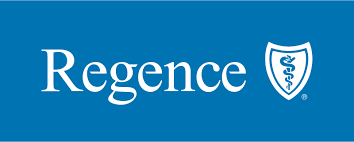Healthier Together: ALS awareness - 'There is no cure'
This content is from our sponsor.


Healthier Together: ALS awareness
ALS is a progressive disease that affects nerve cells in the brain and spinal chord. In this week's Healthier Together, a woman shares her story of working her dream job to receiving a gut-wrenching diagnosis.
ALS is a progressive disease that affects nerve cells in the brain and the spinal cord as well. Although the disease was discovered in 1869, there is still no cure and no treatment. In this week's Healthier Together, a woman shares her story of working her dream job to receiving a gut-wrenching diagnosis.
"I was a physician assistant in cardiothoracic surgery, and I was offered a job out here, and it's been the dream job of my life," said Valerie O’Mara. "I loved getting up every day and going to work. My name is Valerie I lived in Seattle since 1981. And was diagnosed with ALS in March of 2018."
"It was the saddest day of my life, to leave a career that I had cherished for almost four years," said O’Mara. "But I also have the mindset that I've been given this diagnosis that carries a two to five year life expectancy. We were expecting our first grandchild, and I just thought ‘I need to focus on family,’ and so while it was the saddest day of my life to leave my career, it was the best thing. Flash forward to now. I have just passed the five-year mark of having ALS, and I'm very lucky that way. Most people don't get that."
Doctors say ALS is a relatively rare but devastating disease.
"ALS typically presents with progressive painless weakness in an extremity, so weakness in your hand or weakness in a foot or leg. That slowly gets worse," said Dr. Michael Elliot, neurologist and medical director of the ALS program at Swedish Medical Center. "Valerie is a very special person who she is super courageous. She is bold in the sort of way she faces off with the disease. She lives her life to the fullest," said Dr. Elliot. "So she's just a gracious, courageous, beautiful person, like many of our patients are. People often say that the nicest people get ALS and Valerie is certainly one of those people."
O’Mara says she’s hopeful that researchers will make progress in the search for a treatment or a cure.
"I always tell people, ALS was discovered in 1869, but my diagnosis five years ago is exactly the same thing Lou Gehrig heard. There is no cure. There's no reversal. There's no slowing this down, and we're just now pushing to get more research. Get them to figure out how to get medicines that can get halt it, reverse its, cure it. Someone is going to hit the keys and find a cure. And while it's not like to benefit myself, it can help somebody else down the road. Let’s find a cure. 1869 was a long time ago."
This content is from our sponsor.

